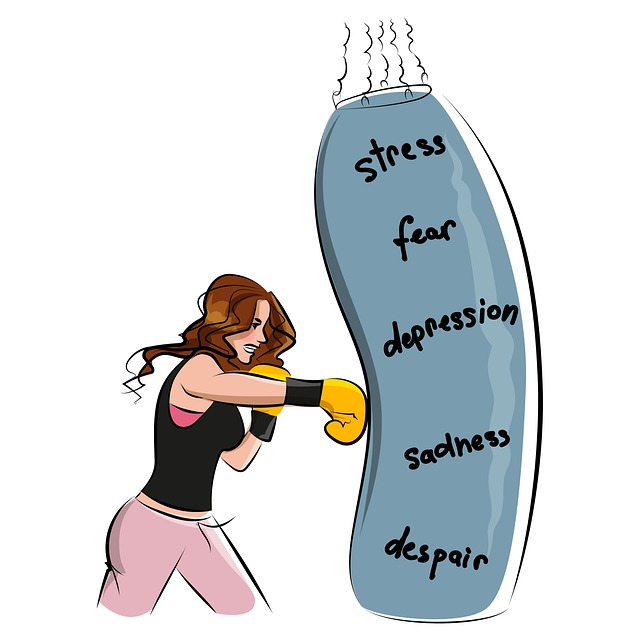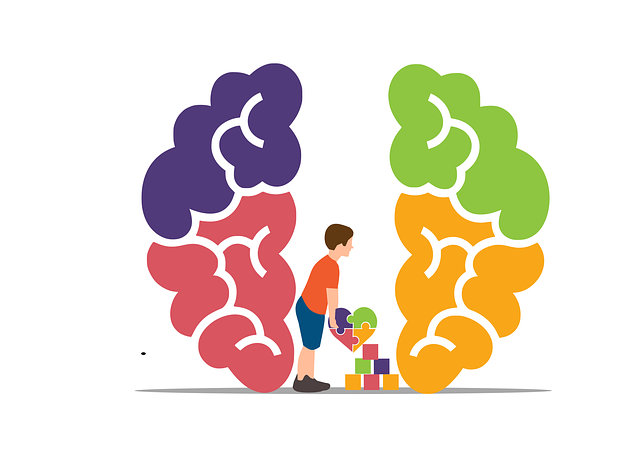Identifying and addressing Castle Rock workplace issues through effective stress management workshops is crucial for organizations to enhance employee well-being. These workshops, targeting healthcare providers, combine interactive techniques like mindfulness and cognitive reframing with evidence-based practices tailored to specific job stress therapy challenges. By fostering open communication, providing personalized strategies, and encouraging self-care, these sessions reduce anxiety, prevent burnout, and improve job satisfaction. Continuous evaluation and follow-up initiatives ensure lasting benefits for both individuals and the organization's overall health.
Stress management workshops are an effective way to tackle the prevalent issue of job stress in the Castle Rock workplace. This article explores the benefits of organizing such sessions, offering a comprehensive guide for businesses aiming to enhance employee well-being. From identifying specific Castle Rock workplace issues to designing engaging activities, we delve into strategies to reduce stress levels. Learn how these workshops can revolutionize your company’s culture, fostering a supportive environment and long-term solutions for a happier, healthier workforce.
- Understanding Stress in the Workplace: Identifying Castle Rock Workplace Issues
- Benefits of Workshops for Job Stress Therapy and Employee Well-being
- Designing Effective Stress Management Workshops: Activities and Techniques
- Creating a Supportive Environment: Facilitation Tips for Workshop Success
- Measuring Impact and Long-term Strategies for Sustaining Reduced Stress Levels
Understanding Stress in the Workplace: Identifying Castle Rock Workplace Issues

Understanding Stress in the Workplace begins with identifying the specific Castle Rock workplace issues that contribute to job stress. These can range from heavy workloads and tight deadlines to interpersonal conflicts, lack of support, or unclear roles and responsibilities. By recognizing these Castle Rock workplace issues, organizations can implement targeted strategies for stress management.
Effective Risk Management Planning for Mental Health Professionals is crucial in addressing these challenges. Workshops focused on Stress Management can equip employees with emotional healing processes to cope better. These sessions should be designed to enhance communication, provide clear guidelines for workload management, and foster a supportive work environment. Such proactive measures not only improve employee well-being but also boost productivity and overall organizational health.
Benefits of Workshops for Job Stress Therapy and Employee Well-being

Stress management workshops offer a structured and supportive environment for employees to learn and practice effective coping strategies. These sessions are invaluable tools in addressing Castle Rock workplace issues and job stress therapy, promoting overall employee well-being. Through interactive activities and guided practices, participants gain insights into their personal stress triggers and develop personalized methods to manage them.
The benefits extend beyond individual improvement; they positively impact the organizational culture. By fostering a supportive environment and equipping employees with compassion cultivation practices, workshops can enhance collaboration and communication. Additionally, confidence-boosting exercises can lead to improved job satisfaction and performance, creating a healthier and more productive workforce.
Designing Effective Stress Management Workshops: Activities and Techniques

Designing effective stress management workshops involves a blend of interactive activities and evidence-based techniques tailored to address Castle Rock workplace issues and job stress therapy. Engaging participants through exercises like mindfulness meditation, progressive muscle relaxation, and cognitive reframing can significantly reduce anxiety relief and burnout prevention, especially for healthcare providers. These practices not only enhance self-awareness but also equip individuals with practical tools to navigate stressful situations.
A successful workshop should incorporate a mix of theoretical knowledge and hands-on experiences. Facilitators can use case studies, group discussions, and role-playing scenarios to illustrate stress management concepts. Additionally, incorporating creative outlets like art therapy or music can provide alternative avenues for emotional expression and processing. The Community Outreach Program Implementation should emphasize the importance of regular practice and self-care routines, fostering a culture that prioritizes well-being in both personal and professional settings.
Creating a Supportive Environment: Facilitation Tips for Workshop Success

Creating a supportive environment is paramount for successful stress management workshops. This involves fostering an atmosphere where participants feel comfortable sharing their experiences and actively engaging in discussions without fear of judgment. Facilitators should ensure open communication, encouraging active participation through interactive exercises and group dynamics. Using techniques like icebreakers and personal anecdotes can help build rapport and trust among attendees, making them more receptive to learning stress reduction methods.
For workshop success, facilitators must be adept at navigating conversations, ensuring all voices are heard, and addressing Castle Rock workplace issues and job stress therapy-related concerns. This includes skillfully handling sensitive topics, offering practical advice, and providing a safe space for mental health professionals to discuss risk assessments and confidence-boosting strategies. Through these efforts, participants can effectively learn and implement stress management techniques tailored to their needs.
Measuring Impact and Long-term Strategies for Sustaining Reduced Stress Levels

Measuring the impact of stress management workshops is a crucial step in understanding their effectiveness and ensuring long-term benefits. By assessing participant satisfaction, changes in stress levels, and improvements in overall well-being, organizations can gather valuable insights into the success of these initiatives. This data allows for continuous improvement and adaptation of workshop content to meet evolving Castle Rock workplace issues and job stress therapy needs.
Implementing long-term strategies for sustaining reduced stress levels is essential beyond the immediate aftermath of workshops. Initiatives such as regular check-ins, ongoing educational resources, and peer support networks can help maintain momentum. Additionally, fostering a culture of open communication and mental illness stigma reduction efforts within organizations contribute to a holistic approach, promoting employee resilience and overall mental health. These strategies collectively aim to create an environment where employees feel empowered to manage stress effectively, preventing depression and encouraging proactive mental wellness practices.
Stress management workshops are a powerful tool to address Castle Rock workplace issues, offering tangible benefits in job stress therapy and employee well-being. By designing effective sessions with engaging activities and techniques, creating a supportive environment, and measuring impact, organizations can foster a culture of resilience. This holistic approach not only helps employees navigate and overcome immediate stressors but also promotes long-term strategies for sustained reduced stress levels, ultimately enhancing productivity and overall workplace satisfaction.











